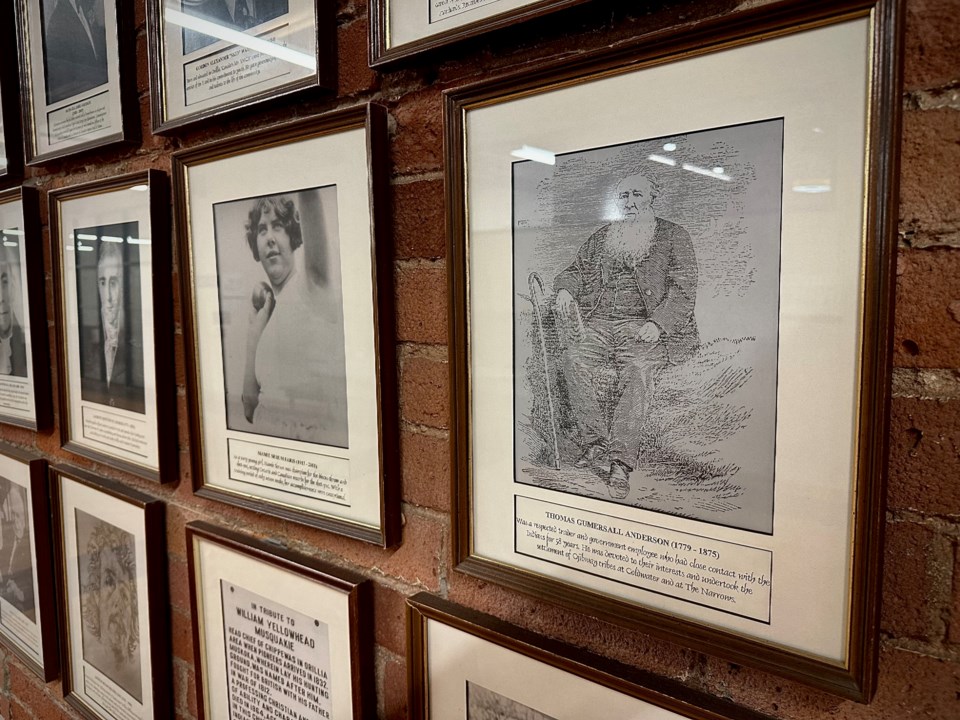Thomas Gummersall Anderson, a 19th-century fur trader, soldier, and British Indian Department employee, is set to be ousted from the Orillia Hall of Fame.
City council voted in favour of the move at Monday’s council meeting following the recommendation of the city’s commemorative awards committee.
As a result of today's decision, Anderson’s framed portrait at Orillia City Centre will be taken down and all references to him will be removed from future Orillia Hall of Fame books.
Originally inducted in 1993, more than a century after his death, it was found that Anderson had spent little time in the Orillia area and that he played an “integral role” in developing policy for Indigenous peoples, the focus of which eventually centered on reserve settlement and indoctrination.
According to research and consultation carried out by the committee, Anderson promoted the idea of “industrial schools” for Indigenous peoples — seen as a precursor to the residential school system — writing in 1854 that “to promote education among the Indians no system can promise a more satisfactory result than that of the Industrial School.”
On top of that, he wasn't based in Orillia.
“Anderson appeared to have spent little time in the Orillia area. His offices were located, at various times, in Penetanguishene, Cobourg, and Toronto,” said Chuck Penny, chair of the commemorative awards committee.
“Though he was involved with Indigenous people relocating to Rama, Anderson otherwise had minimal impact and involvement with the Orillia area.”
Given his work with Indigenous peoples, and his tenuous connection to the city, Penny said committee members believe Anderson would not meet the eligibility criteria for a Hall of Fame appointment today.
The committee’s report acknowledges “assessing an historic figure based on today’s standards is challenging and can be controversial,” but recommended his removal from the Hall of Fame following consultation with Rama First Nation Chief Ted Williams, Lakehead University’s Dr. Cynthia Wesley Esquimeaux, and University of Toronto’s Dr. Catherine Sutton.
“Historical accounts appear to indicate that Anderson had a positive rapport with Indigenous peoples,” the report states. “However, these accounts seem to largely ignore the opinion of the Indigenous communities involved.”
City council agreed with the committee’s recommendation, with Coun. Jay Fallis highlighting a need to be able to make adjustments to the city’s Hall of Fame.
“I think we do need to have some capacity to make adjustments. It's not to say we want to change the way the whole thing works, or anything like that, but there does need to be a little bit of flexibility,” he said. “The other thing, too, is this is about kind of making sure we're reflective of what we're trying to embody when it comes to representing Indigenous reconciliation.”
“I really do see this as an act of reconciliation,” agreed Coun. Janet-Lynne Durnford. “I think it's very clear that Mr. Anderson's actions and words were harmful, and I think that it's very important that we … rescind the place in the Hall of Fame.”
Coun. Tim Lauer, however, said Anderson’s removal could set a precedent that might “produce a lot of other complications."
“Given the fact that we're in a changing world and what we once thought was acceptable, it's going to be not considered acceptable in the future,” he said. “If you go through (the Hall of Fame), a lot of folks don't actually meet the criteria that we've got currently, right? I think it's important to get this all sorted out so that we avoid some complications.”
Durnford said such a precedent may not be a bad thing.
“In terms of setting a precedent, I don't think that's necessarily a bad thing,” responded Durnford. “If there are other members of the Hall of Fame who actively harmed groups of people or were not relevant to the history of the City of Orillia, I would argue that their appointments … should be reconsidered.”
Monday’s decision is subject to ratification during the next meeting of city council.
